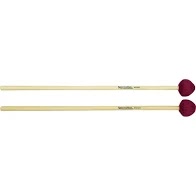By Alara Bishop
Motlow Buzz Contributing Writer
Do you want to be a percussionist? Do want to learn but don’t know where to start?
Well here are a few tips and tricks I found most helpful over the past years, and I hope they are helpful to you. Most of what you do in percussion (as far as sticks, mallets, and private lessons are concerned) is personal preference. I wrote this article to give new percussionists some information on what helped me and what they might need to do to get started.
My background:
In sixth grade, I tried out for band and made it into the percussion section. My love of making noise blossomed after that. I marched percussion all through high school and played mallets for concert percussion. In high school, I had to learn how to play many different percussion instruments.
Percussion became my main focus. I still participated in choir, but band was my major thought. I loved being able to play all the different instruments in class. Learning to play percussion was not easy. With over 200 different instruments to learn, I had a big challenge ahead of me. I eventually learned that playing mallets was an easy thing for me, so I turned most of my attention to it.
What is Percussion?:
Percussion is so much more than beating on a drum. To be a percussionist, you have to learn how to play many different instruments from all over the world. A major subheading under the umbrella of percussion is mallets.
I played just about everything while I was still in middle and high school. Percussion is not just snare drums, and it is not just mallets. Percussion is not one specific instrument. It is a combination of hundreds of instruments from mallets to tambourines to a guiro. Percussion encompasses instruments from many different countries and brings them all together to make very unique sounds.
Sticks and Mallets:
Drum sticks are the most important piece in any percussionists arsenal. There are hundreds of different types of drums sticks produced.
I prefer to use Lalo Davilla’s innovative percussion concert drum sticks for any concert performances and Innovative Percussion Arena Series Marching Sticks Bret Kuhn Hickory marching percussion.
Everyone is different, so pick the sticks that work best for you. I have large hands, so I prefer a larger, thicker stick. For each mallet instrument, you need a different pair of mallets.
For Marimba and Vibraphone, I use Innovative Percussion Hard Vibe/Marimba Mallets.You can buy separate mallets for the vibraphone, but I tend to use the same ones because they are made for both.
For Xylophone,I use Vic Firth Poly Xylophone Mallets.The Xylophone requires different mallets than Marimba and Vibraphone.
Using the incorrect type of mallets can damage the mallet and instruments, so pay close attention to what type of mallets go with the instrument you are using.
You can view different types of drum sticks at https://www.musicarts.com/drum-sticks-mallets?page=3&sort_by=topseller-descending
You can view different types of mallets at https://www.musicarts.com/search?q=mallets
Stick tape:
Stick tape is not mandatory. I use stick tape just to preserve the drum stick a little longer. The most common tape used for stick tape is electrical tape. Electrical tape sticks better and is the perfect width to wrap around the stick. I usually change colors with each holiday, but again that’s not necessary and completely optional.
Training:
No one will pick up percussion overnight. It takes many years and a lot of dedication to become a well-rounded percussionist. I became solely percussion-centered in sixth grade. That was nine years ago! I am still learning and growing as a percussionist myself. There are still many things I have to learn.
I had several instructors while in high school. The most frequent instructor was Lalo Davilla’s wife, Julie Davilla.She was the percussion instructor my freshman, junior and senior years. She spends most of her time working with Drum Core International groups but does offer private lessons.
There are many percussionists who offer private lessons and group lessons. Both of my middle school band directors were percussionists, so it made being in the percussion section even more fun. They took their love of percussion and put it into their teaching, and it made me realize how much I could really gain from it.
It doesn’t matter if you are 10 or 50. It’s never too late to learn percussion. Several music stores such as Music & Arts, Music Stop, and Guitar Center offer paid lessons. The cost depends on the instructor, so it's different for every person and the level you are at when you start the lessons.
Practice:
Practice makes perfect. You must practice! Just playing when you are in lessons or in a classroom will not help you improve at a steady rate. If you don’t practice you will spend much of your time trying to relearn and recall what you were taught during your lesson, and that will hurt you in the end.
Learn More:
I hope some of this information was useful to you, and I look forward to writing more. Follow me on twitter @curioussoundunl and on Facebook @curioussoundunlimited. Visit my blog at www.curioussoundunlimited@gmail.com





No comments:
Post a Comment